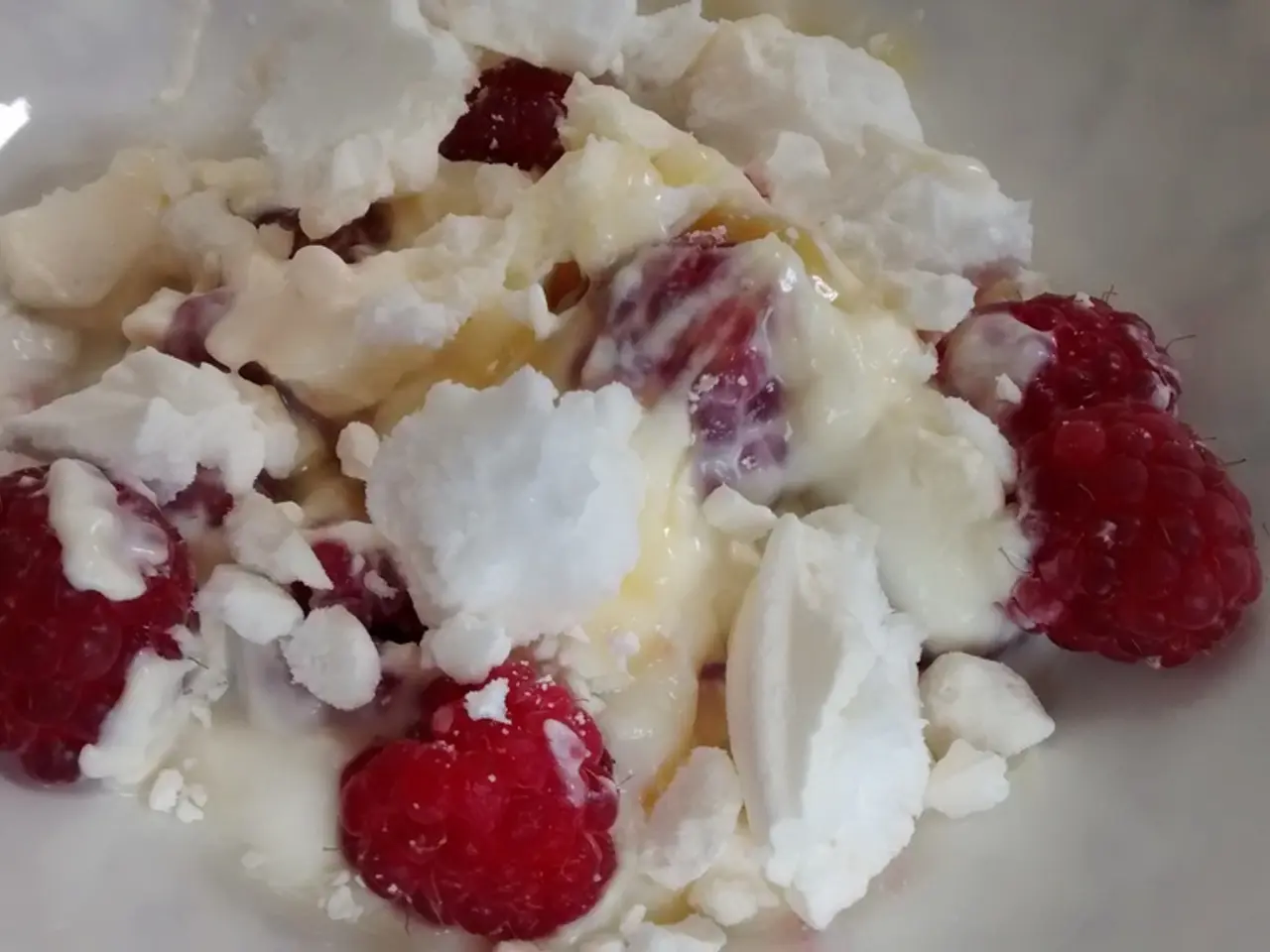"Twenty-three recipes for reducing inflammation in 2023"
For professional athletes, enduring the rigours of intense training and competition requires a balanced diet that not only fuels their bodies but also aids in recovery. Several foods have been identified for their anti-inflammatory properties, which are particularly beneficial for endurance athletes.
**Key Anti-Inflammatory Foods and Their Benefits**
- **Fatty Fish (rich in Omega-3 fatty acids)**: Omega-3s found in fish such as salmon, sardines, herring, mackerel, and anchovies, help reduce inflammation by modulating immune responses and decreasing pro-inflammatory markers.
- **Fruits and Vegetables High in Antioxidants and Polyphenols**: These compounds neutralize free radicals and reduce oxidative stress, which accompanies prolonged exercise.
- **Beetroot**: Consuming beetroot juice is linked to increased VO₂ max and improved cardiovascular performance, while also reducing fatigue through its antioxidant effects.
- **Ginger**: Contains gingerol and shogaol, which have strong anti-inflammatory and antioxidant effects. Ginger can reduce C-reactive protein (CRP), a marker of inflammation, and improve metabolic and cardiovascular health.
- **Tart Cherries**: Rich in polyphenols like cyanidins, quercetin, and chlorogenic acid, tart cherries reduce inflammatory processes and may lower the risk of inflammatory diseases.
- **Turmeric**: Its active compound, curcumin, is a powerful anti-inflammatory and antioxidant that reduces muscle and joint inflammation, protects against oxidative damage, and improves blood flow, enhancing muscle performance and speeding recovery.
- **Dried Cranberries**: Contain anthocyanins that block inflammatory pathways and provide an energy boost.
- **Whole Grains and Fiber-Rich Foods**: Support gut health and reduce systemic inflammation.
- **Vitamin C (found in guava, oranges, berries, peppers)**: Acts as an antioxidant, aids tissue repair, and helps clear lactic acid from muscles, reducing soreness and inflammation.
- **Vitamin D (from fatty fish, eggs, fortified dairy)**: Regulates immune function and lowers inflammation.
**Summary of Benefits**
These foods reduce chronic inflammation by lowering pro-inflammatory proteins like CRP, neutralizing oxidative stress from intense exercise, improving circulation for nutrient delivery, and accelerating muscle recovery. This allows endurance athletes to maintain peak performance for longer and recover faster from demanding training sessions.
Incorporating these anti-inflammatory foods into a balanced diet can be a natural and effective strategy for endurance professionals to manage inflammation, enhance energy, and optimize recovery.
In addition, dark chocolate, curcumin supplements, green tea, mushrooms, avocados, broccoli, berries, bell peppers, and chili peppers also offer anti-inflammatory benefits. These foods provide a diverse range of nutrients that can contribute to a healthier, more resilient athletic lifestyle.
- For optimal health and recovery, athletes can consider including foods like fatty fish, fruits and vegetables high in antioxidants and polyphenols, beetroot, ginger, tart cherries, and turmeric in their diet, as these have been shown to reduce chronic inflammation.
- Dried cranberries, whole grains, and fiber-rich foods can also support gut health and reduce systemic inflammation, further aiding recovery.
- Vitamins C and D, found in various fruits, vegetables, and dairy products, play crucial roles in immune function, tissue repair, and muscle recovery, thus alleviating inflammation.
- Embracing a health-and-wellness regime that includes fitness-and-exercise, nutrition, and incorporating anti-inflammatory foods can create a healthier, more resilient athletic lifestyle, enhancing performance and speeding recovery.




